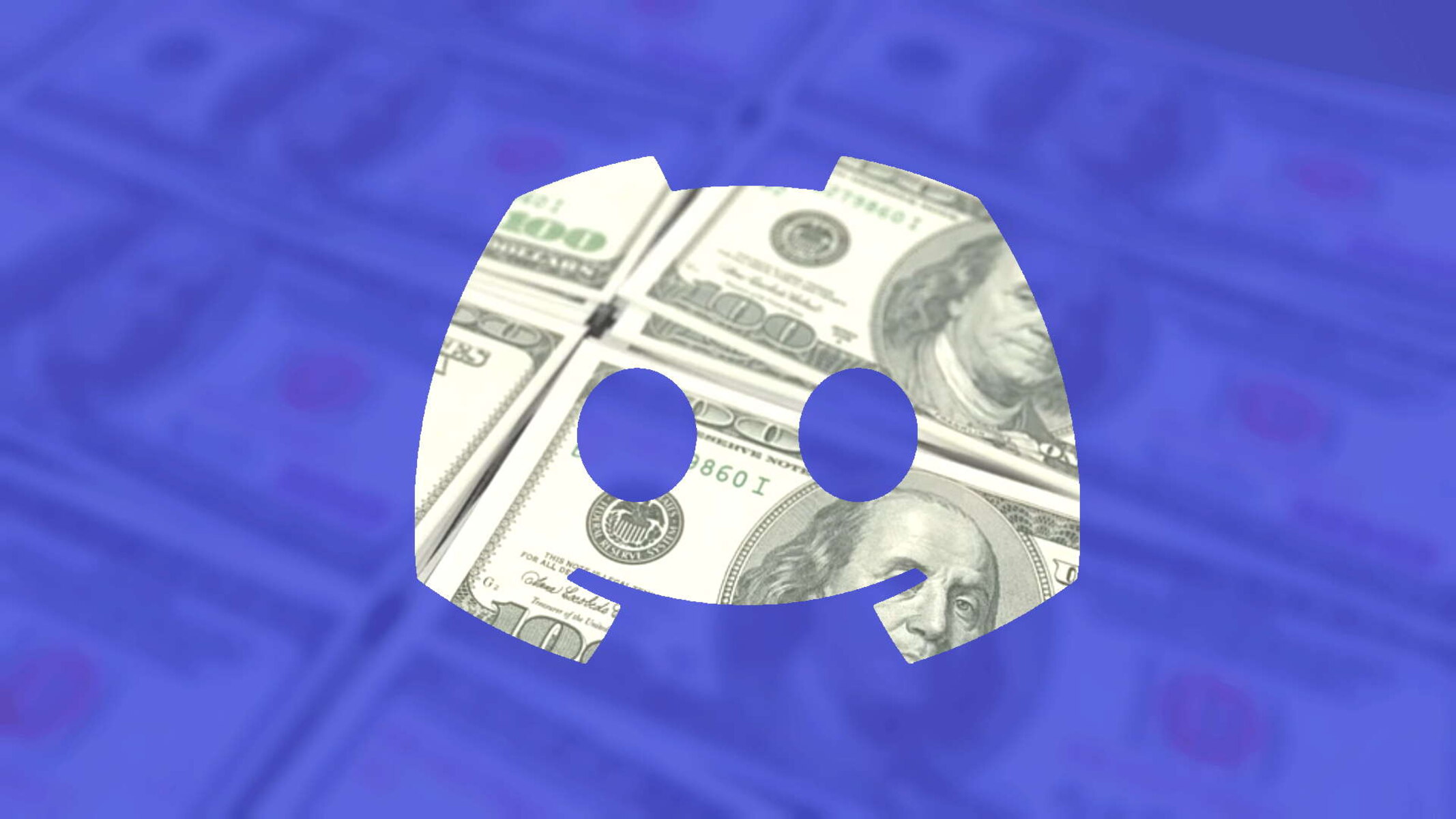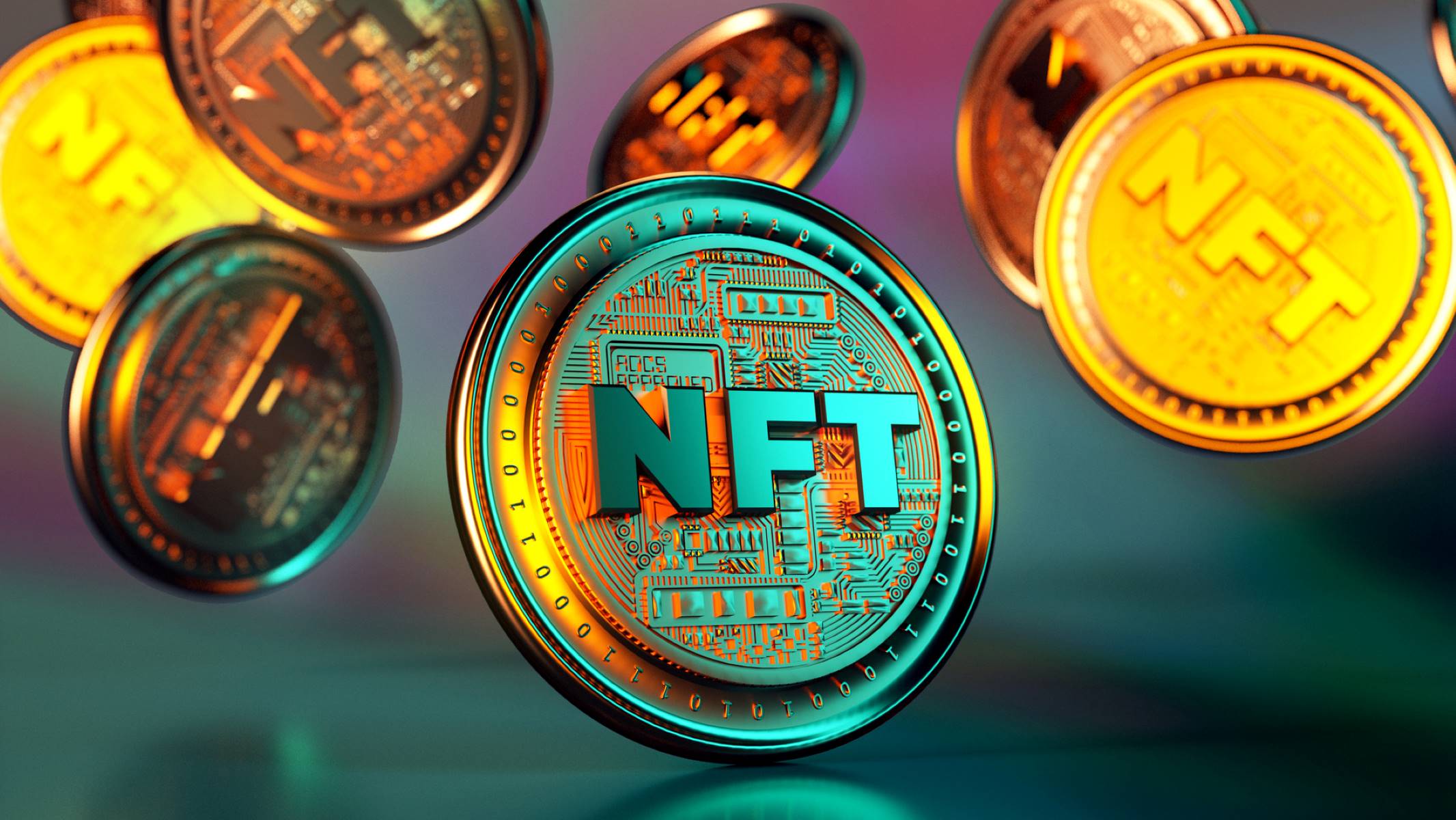Introduction
Welcome to the exciting world of Non-Fungible Tokens (NFTs), where digital assets can be bought, sold, and traded. The rise of NFTs has brought a new level of innovation and opportunity to the world of art, collectibles, and virtual assets. However, with the surge in popularity, there has also been an unfortunate increase in NFT scams.
Scammers are constantly looking for ways to exploit the growing interest in NFTs and take advantage of unsuspecting individuals. These scams can result in significant financial losses and disappointment for those who fall victim to them. It is crucial, therefore, to be aware of the common tactics scammers use and to know how to avoid falling prey to their schemes.
In this article, we will explore the world of NFT scams, provide tips to spot and avoid them, and offer guidance on how to protect yourself and your investments. By arming yourself with knowledge and taking necessary precautions, you can navigate the NFT market with confidence and minimize the risks associated with scams.
So, whether you are an NFT enthusiast, an artist looking to sell your digital creations, or a curious bystander, read on to discover how to avoid NFT scams and safegua
What is an NFT?
Before we delve into the details of NFT scams, let’s first understand the concept of Non-Fungible Tokens (NFTs). In simple terms, an NFT is a unique digital asset that represents ownership or proof of authenticity of a particular item or piece of content. Unlike cryptocurrencies such as Bitcoin or Ethereum, which are fungible and can be exchanged on a one-to-one basis, NFTs are indivisible and cannot be exchanged on a like-for-like basis.
NFTs have gained significant traction in recent years, particularly in the art world. Artists can create and sell digital artwork in the form of NFTs, and collectors can purchase and own these unique pieces. The ownership of an NFT is recorded on a blockchain, typically the Ethereum blockchain, which provides a transparent and immutable ledger of transactions.
The appeal of NFTs lies in their ability to give artists, creators, and collectors a new way to monetize and interact with digital content. They redefine the concept of ownership and enable the trading of digital assets in a secure and decentralized manner.
Furthermore, NFTs extend beyond art and can encompass a wide range of digital assets, including collectibles, virtual real estate, virtual goods in video games, music, videos, and more. The possibilities are endless, and the market for NFTs continues to expand.
It is important to note that owning an NFT does not necessarily grant ownership of the underlying content itself. Instead, it signifies ownership of the original, unique version of the item. For example, owning an NFT of a digital artwork does not automatically grant the owner copyright or reproduction rights to that artwork.
Now that we have a basic understanding of NFTs, let’s explore the common scams you need to be aware of when navigating the world of NFTs.
Common NFT Scams
As the popularity of NFTs continues to rise, so does the prevalence of NFT scams. Scammers are constantly finding new ways to take advantage of unsuspecting individuals in this emerging market. It is crucial to familiarize yourself with the common scams in order to protect yourself and your investments. Here are a few of the most prevalent NFT scams:
- Counterfeit NFTs: In this scam, scammers create fake NFTs that mimic the appearance of legitimate ones. They may copy the artwork, metadata, and even the username of popular artists or platforms. These counterfeit NFTs are then sold to unsuspecting buyers who believe they are purchasing an authentic and valuable digital asset.
- Phishing Scams: Phishing scams involve tricking individuals into divulging their sensitive information, such as private keys or wallet addresses. Scammers may create fake websites or send fraudulent emails that appear to be from legitimate NFT platforms or marketplaces. Unsuspecting victims unknowingly provide their personal information, which the scammers then use to access their digital wallets and steal their NFTs or cryptocurrency.
- Ponzi Schemes: Ponzi schemes are fraudulent investment schemes where scammers promise high returns on NFT investments. They use the funds from new investors to pay off initial investors, creating the illusion of profitability. Eventually, the scheme collapses, leaving many investors empty-handed. It’s important to be wary of any promises of guaranteed returns or unrealistic investment opportunities.
- Bait and Switch: This scam involves presenting a desirable NFT for sale, only to replace it with a different, lower-value one after the transaction is complete. Scammers may use misleading images or descriptions to entice buyers and then deliver an inferior or altogether different NFT. It’s crucial to carefully review the details of an NFT listing and verify the authenticity of the seller before making a purchase.
- Gas Fee Scams: Gas fees are the transaction fees required to process NFT transactions on the Ethereum network. Scammers may create fake NFT listings with extremely low prices to attract buyers. However, when the buyer attempts to purchase the NFT, they are hit with exorbitantly high gas fees, resulting in significant financial loss. It’s important to conduct thorough research and verify the legitimacy of a listing before making a purchase.
These are just a few examples of the common NFT scams that individuals should be aware of. It’s essential to stay vigilant, conduct thorough research, and follow best practices to avoid falling victim to these scams. In the next section, we will explore how to spot an NFT scam and protect yourself from becoming a target.
How to Spot an NFT Scam
With the prevalence of NFT scams, it’s important to be able to recognize the red flags and spot potential scams. By being informed and vigilant, you can protect yourself from falling victim to these fraudulent activities. Here are some key factors to consider when trying to identify an NFT scam:
- Unrealistic prices: Beware of NFT listings that seem too good to be true. If an NFT is priced significantly below its market value or comparable listings, it could be a sign of a scam. Scammers may lure buyers with outrageously low prices to entice them into making hasty purchases without proper research.
- Poor grammar and spelling: Pay attention to the quality of the listing description, website content, or any communication from the seller. Poor grammar, excessive spelling mistakes, and unprofessional language may indicate a scam. Legitimate platforms and sellers usually ensure their content is well-written and free of errors.
- Lack of transparency: Legitimate NFT projects and sellers are transparent about the details and background of their offerings. If you come across an NFT listing or platform that lacks clear information about the artist, the asset’s history, or the project’s goals, it’s wise to be skeptical. Reputable creators and platforms are committed to providing as much information as possible to potential buyers.
- Unverified creators and platforms: One way to mitigate scams is to verify the legitimacy of the creators and platforms behind the NFTs. Check for social media presence, official websites, or reputable endorsements. Perform a background check on the creators’ or platforms’ previous works, community involvement, and reputation. If you cannot find any information or there are negative reports, exercise caution.
- Pressure to buy quickly: Scammers often create a sense of urgency to push potential buyers into making quick decisions without thoroughly researching the NFT or the seller. Be wary of claims that the NFT will be sold to the highest bidder within a short time or that the price will increase soon. Take your time to evaluate the details and authenticity of the NFT and the seller.
- Unsecured communication channels: Avoid sharing sensitive information or conducting transactions through unsecured communication channels. Verify that you are interacting with the legitimate NFT platform or seller before providing any personal details or engaging in financial transactions. Look for secure website connections (HTTPS) and official email communications.
By being aware of these warning signs, you can better protect yourself from falling victim to NFT scams. In the next section, we will explore tips to help you avoid NFT scams and navigate the market safely.
Tips to Avoid NFT Scams
As the NFT market continues to grow, it’s important to take proactive measures to protect yourself from scams. By following these tips, you can minimize the risk of falling victim to fraudulent activities and ensure a safer NFT experience:
- Research and Due Diligence: Before making any NFT purchase, conduct thorough research on the artist, the project, and the platform. Look for information about the creator’s previous works, reputation in the industry, and community engagement. Verify the authenticity of the NFTs by checking for any verification badges or certificates associated with the artwork.
- Stick to Trusted Platforms: Use reputable NFT marketplaces and platforms that have a track record of trustworthy transactions. Research and choose platforms that have built a strong reputation in the NFT community and prioritize security measures to protect buyers and sellers. Consider platforms that offer additional features like escrow services and dispute resolution mechanisms.
- Verify Authenticity and Ownership: Look for NFTs that have gone through a verification process to ensure their authenticity. Verify the ownership of the NFT by checking the public blockchain records for transparency. Double-check the unique identification information associated with the NFT, such as contract address and token ID, to ensure it matches the correct artwork or item.
- Protect Your Digital Wallet: Protect your digital wallet with strong and unique passwords. Enable two-factor authentication (2FA) to add an extra layer of security. Be cautious about sharing your wallet information, private keys, or recovery phrases with anyone. Regularly update your wallet software to ensure you have the latest security features.
- Be Wary of Unrealistic Promises: If an offer seems too good to be true, it probably is. Be skeptical of claims that promise guaranteed high returns or instant wealth through NFT investments. Remember that the NFT market, like any investment market, carries risks. Exercise caution and avoid FOMO (Fear Of Missing Out) when faced with enticing yet overly promising opportunities.
- Stay Informed: Keep up with the latest news and developments in the NFT space. Stay informed about new scam techniques and strategies used by scammers. Join NFT communities, follow reputable industry influencers, and participate in discussions to gather insights and learn from others’ experiences.
- Trust Your Instincts: Trust your gut feeling and exercise caution when dealing with unfamiliar sellers or suspicious listings. If something feels off or raises doubts, take a step back and reconsider the transaction. Don’t hesitate to seek guidance from trusted experts or friends familiar with NFTs before making any decisions.
By applying these tips and adopting a cautious approach, you can navigate the NFT market with greater confidence and decrease the chances of falling victim to scams. Remember, the key is to be proactive, diligent, and informed in all your NFT transactions.
Research and Due Diligence
When it comes to navigating the world of NFTs, conducting thorough research and due diligence is absolutely crucial. Taking the time to educate yourself and thoroughly investigate the various aspects of an NFT can significantly reduce the risk of falling victim to scams. Here are some key steps to consider when conducting research and due diligence:
- Verify the Artist and Project: Research the background and reputation of the artist associated with the NFT. Look for information about their previous works, their style, and their involvement in the art community. Pay attention to any previous collaborations or exhibitions they may have participated in. Similarly, when considering NFTs from a specific project or collection, delve into the project’s history, goals, and community engagement.
- Check Community Reputation: Engage with the NFT community to gather insights and opinions about the artist, the project, or the platform. Join relevant forums, social media groups, and discussion platforms to interact with other collectors, artists, and enthusiasts. Seek out feedback and reviews from individuals who have had prior experience with the artist or the platform.
- Review the Platform’s Background: Before engaging with an NFT marketplace or platform, verify its legitimacy and reputation. Research the platform’s history, user feedback, and security measures. Look for information about the platform’s team, its partnerships, and any notable investors. Check if the platform has experienced any security breaches or controversies in the past. Opt for well-established and trusted platforms that prioritize user safety and have a proven track record.
- Examine the Smart Contract: Each NFT is associated with a smart contract that defines its characteristics, ownership, and other key details. Take the time to analyze the smart contract code associated with the NFT. Look for any potential vulnerabilities or suspicious functions that could indicate a scam. You can seek assistance from experts or developers within the NFT community if you are not familiar with reading smart contract code.
- Research the Market Value: Assess the market value of similar NFTs and comparable projects. Compare the prices at which similar NFTs have been sold in the past and evaluate the current demand for the specific artist or project. Look for any significant fluctuations in the market, as extreme price variations could be a sign of manipulation or scams. Understanding the fair market value can help you make more informed decisions and avoid overpaying or falling for artificially inflated prices.
- Understand the Rights and Terms: Pay close attention to the rights and terms associated with the NFT. Understand what you are actually purchasing and what rights or licenses come with the NFT. Read and comprehend the terms and conditions set by the artist or the platform, particularly regarding commercial usage, copyright, and reproduction rights. If any terms are unclear or ambiguous, seek legal counsel or ask for clarification from the artist or platform.
Remember, conducting research and due diligence is an ongoing process, and it’s essential to stay informed about the ever-evolving NFT landscape. By investing time and effort into these research steps, you can make more informed decisions and minimize the risk of falling victim to NFT scams.
Be Wary of Unrealistic Promises
When navigating the world of NFTs, it’s important to approach any offers or promises with a healthy dose of skepticism. Unfortunately, scammers often prey on individuals’ desires for quick profits and can make enticing but unrealistic claims. By being aware of these unrealistic promises, you can protect yourself from falling victim to scams. Here are some key things to look out for:
- Guaranteed High Returns: Scammers may promise high returns on NFT investments, claiming that you’ll make a substantial profit in a short period. However, it’s crucial to understand that the value of NFTs can fluctuate, and the market is not a guaranteed source of quick wealth. Be wary of any claims that guarantee specific returns, as they are often too good to be true.
- Instant Profitability: Be cautious of promises that an NFT will immediately appreciate in value or that you’ll be able to sell it at a much higher price shortly after purchase. While some NFTs may indeed increase in value over time, it is not a guarantee for every single NFT. The market is dynamic, and various factors can influence an NFT’s value.
- Get Rich Quick Schemes: Scammers may attempt to lure individuals with get-rich-quick schemes that promise massive profits in a short period. Such schemes often require significant upfront investments or promise access to exclusive NFT opportunities. Remember that legitimate investments take time and careful consideration, and it’s crucial to approach any investment opportunity realistically.
- Insider Secrets or Exclusive Information: Be cautious of claims that offer insider secrets or exclusive information about upcoming NFT drops or projects. Scammers may try to convince you that they have access to privileged information that can provide you with an advantage. Legitimate opportunities are typically open to the public, and everyone has access to the same information.
- Pressure Sales Tactics: Scammers often use pressure sales tactics to rush you into making impulsive decisions. They may claim that time is running out or that the opportunity is limited to create a sense of urgency. Take your time to evaluate any investment opportunity carefully. Legitimate sellers and platforms will not pressure you into making hasty decisions.
- Unrealistically Low Prices: While it’s tempting to find NFTs at a bargain price, be cautious of listings that are significantly underpriced compared to their market value. Scammers may use artificially low prices to lure unsuspecting buyers into making quick purchases without conducting proper research.
By being aware of these unrealistic promises and avoiding them, you can protect yourself from falling victim to NFT scams. Remember that legitimate investments and opportunities are backed by informed decision-making and realistic expectations.
Stick to Trusted Platforms
When it comes to buying and selling NFTs, one of the most important steps in avoiding scams is to stick to trusted platforms. With the growing popularity of NFTs, numerous platforms and marketplaces have emerged, but not all of them are reputable or secure. By choosing trusted platforms, you can significantly reduce the risk of falling victim to scams. Here are some key reasons why you should stick to trusted platforms:
- Security and Safety: Trusted platforms prioritize the security and safety of their users. They implement stringent security measures to protect against hacking attempts, phishing scams, and unauthorized access to personal information or digital wallets. Trusted platforms also have well-established policies and procedures to handle disputes and provide recourse in case of fraudulent activities.
- Reputation and User Feedback: Trusted platforms have built a strong reputation within the NFT community and have a track record of successful transactions. They value transparency and user satisfaction, and often have a large user base with positive feedback and reviews. By choosing trusted platforms, you can leverage the experiences of other users and benefit from their insights and recommendations.
- Verified Artists and NFTs: Trusted platforms work with verified and reputable artists, ensuring that the NFTs listed on their platform are authentic and of high quality. They often have a strict vetting process for artists and NFT projects, ensuring that buyers can trust the legitimacy and value of the NFTs they purchase.
- Additional Features and Services: Trusted platforms often offer additional features and services that enhance the overall NFT experience. These may include escrow services to safely facilitate transactions, dispute resolution mechanisms, and tools for artists to interact and engage with their community. By using trusted platforms, you can benefit from these additional services and have peace of mind in your NFT transactions.
- Support and Customer Service: Trusted platforms have dedicated support teams or customer service channels to assist users with inquiries, troubleshoot issues, and provide guidance. If you encounter any challenges or have questions about an NFT transaction, you can rely on the support provided by trusted platforms to help you navigate the process smoothly.
- Community and Networking: Trusted platforms often foster vibrant communities and networking opportunities within their user base. This allows you to connect with like-minded individuals, learn from experienced collectors and artists, and stay up-to-date with the latest trends and developments in the NFT space. Being part of a supportive and engaged community can add value to your NFT journey.
By sticking to trusted platforms, you can significantly reduce the risk of falling victim to NFT scams. Research popular platforms, read user reviews, and carefully evaluate their security measures, reputation, and additional features before engaging in any transactions. Prioritizing security and reliability will ensure a safer and more enjoyable NFT experience.
Verify Authenticity and Ownership
When engaging in NFT transactions, it is crucial to verify the authenticity and ownership of the NFTs you are interested in. Authenticity ensures that the NFT you are purchasing is genuine, while ownership verification confirms that you are buying from the rightful owner. By taking the necessary steps to verify authenticity and ownership, you can protect yourself from scams and ensure a legitimate NFT transaction. Here are some key considerations:
- Examine Metadata and Certificates: Carefully review the metadata associated with the NFT, including the artwork details and any certificates of authenticity. Metadata can provide information about the creator, the artwork’s history, and its uniqueness. Some NFT marketplaces offer verification badges or certificates for authentic NFTs, which add an extra layer of trust and assurance.
- Check the Blockchain: NFTs are typically built on a blockchain, such as Ethereum, that provides a transparent and immutable record of ownership. Verify the NFTs’ blockchain address and token ID to ensure they match the correct artwork or item. Use blockchain explorers to examine the transaction history and check for any suspicious activity or transfers.
- Research the Artist or Creator: Take the time to research the artist or creator behind the NFT. Look for their verified social media accounts, official website, or reputable articles or interviews. Verify their reputation, previous works, and community involvement to ensure they are legitimate. A well-established artist or creator with a strong presence in the community adds credibility to the NFT and reduces the risk of scams.
- Verify Ownership Transfer: When purchasing an NFT, ensure that the ownership is properly transferred to your digital wallet. Check the transaction details on the blockchain to confirm that the transfer has been completed successfully. Be cautious of any seller or platform that delays the ownership transfer or claims that it will occur after the transaction is complete. Ownership should be transferred immediately upon purchase.
- Utilize Minting or Creation Platforms: Some NFT projects or platforms offer minting or creation platforms for artists to create and authenticate their NFTs. Verify if the NFT you are interested in has been minted or created through an official platform. Minting platforms often provide additional verification and authenticity checks to ensure the integrity of the NFTs listed on their platform.
- Consider Third-Party Verification Services: If you are uncertain about the authenticity or ownership of an NFT, consider utilizing third-party verification services. These services can conduct thorough checks on the NFT’s authenticity, ownership history, and any associated copyrights or licenses. While these services may come at an additional cost, they can provide valuable peace of mind when dealing with high-value or rare NFTs.
By verifying authenticity and ownership, you can confidently engage in NFT transactions, knowing that you are purchasing legitimate digital assets. Ensure that you thoroughly examine the metadata, conduct research on the artist or creator, check the blockchain records, and confirm the ownership transfer. Utilize the available resources and support to authenticate the NFTs you are interested in, and always prioritize transparency and legitimacy.
Protect Your Digital Wallet
When participating in NFT transactions, it is essential to prioritize the protection of your digital wallet. Your digital wallet contains the keys that grant access to your NFTs and cryptocurrency, making it a prime target for scammers. By implementing proper security measures, you can safeguard your wallet and reduce the risk of unauthorized access or theft. Here are some key steps to protect your digital wallet:
- Choose a Secure Wallet: Select a reputable and secure digital wallet that is specifically designed for storing and managing NFTs and cryptocurrencies. Research different wallet options and consider factors such as encryption, multi-factor authentication, ease of use, and community reviews.
- Use Strong and Unique Passwords: Set a strong and unique password for your digital wallet. Avoid using easily guessable passwords and consider using a password manager to securely store and manage your passwords. Regularly update your password to maintain a high level of security.
- Enable Two-Factor Authentication (2FA): Activate two-factor authentication on your wallet to add an extra layer of security. This typically involves entering a verification code from a separate device or app when logging in or making transactions. Enable 2FA to significantly reduce the risk of unauthorized access to your wallet.
- Keep Your Wallet Software Up to Date: Regularly update your wallet software to ensure you have the latest security patches and features. Developers often release updates to address any vulnerabilities or bugs that could be exploited by scammers. Staying up to date with the latest software version helps protect your wallet from potential security breaches.
- Be Cautious of Phishing Attempts: Be wary of phishing attempts where scammers try to trick you into revealing your wallet credentials or private keys. Double-check the website address and ensure you are using the official wallet website. Avoid clicking on suspicious links or downloading files from unknown sources.
- Backup Your Wallet: Regularly back up your wallet by securely storing a copy of your wallet’s private keys or recovery phrase. Store this backup in a separate, safe location offline, such as a hardware wallet or a secure storage device. This ensures that you can recover your wallet if necessary, even in the event of a lost or compromised device.
- Exercise Caution with Third-Party Services: Be cautious when using third-party services or platforms that require access to your digital wallet. Conduct thorough research to ensure the service is trustworthy and reputable. Only provide wallet access when necessary and be vigilant for any signs of suspicious activity.
Protecting your digital wallet is crucial in safeguarding your NFTs and cryptocurrencies. By following these steps, such as using a secure wallet, using strong passwords, enabling 2FA, and staying cautious of phishing attempts, you can minimize the risk of unauthorized access and protect your valuable digital assets.
Conclusion
As the popularity of NFTs continues to soar, it is imperative to stay vigilant and educated about the various scams that exist within the NFT marketplace. By being aware of common NFT scams, knowing how to spot them, and taking proactive measures to protect yourself, you can navigate the NFT landscape with confidence and minimize the risk of falling victim to scams.
Through this article, we have explored the different types of NFT scams, including counterfeit NFTs, phishing scams, Ponzi schemes, bait and switch tactics, and gas fee scams. By understanding the tactics used by scammers, you can be more alert and recognize the warning signs.
We have also discussed important tips to avoid NFT scams. Researching and conducting due diligence, sticking to trusted platforms, verifying authenticity and ownership, and protecting your digital wallet are all essential practices to implement for a safer NFT experience.
Remember, when it comes to NFTs, knowledge is power. Stay informed about the latest trends, market values, and developments in the NFT space. Engage with the NFT community, seek advice from trusted sources, and trust your instincts when evaluating potential NFT purchases.
By following these guidelines and remaining proactive, you can enjoy the benefits and excitement of the NFT world while minimizing the risks associated with scams. Embrace the transformative potential of NFTs, support legitimate artists and creators, and make informed decisions to protect yourself and your investments.
With the right knowledge and precautions, you can confidently participate in the NFT marketplace, showcasing your own creativity or collecting unique and valuable digital assets.

























